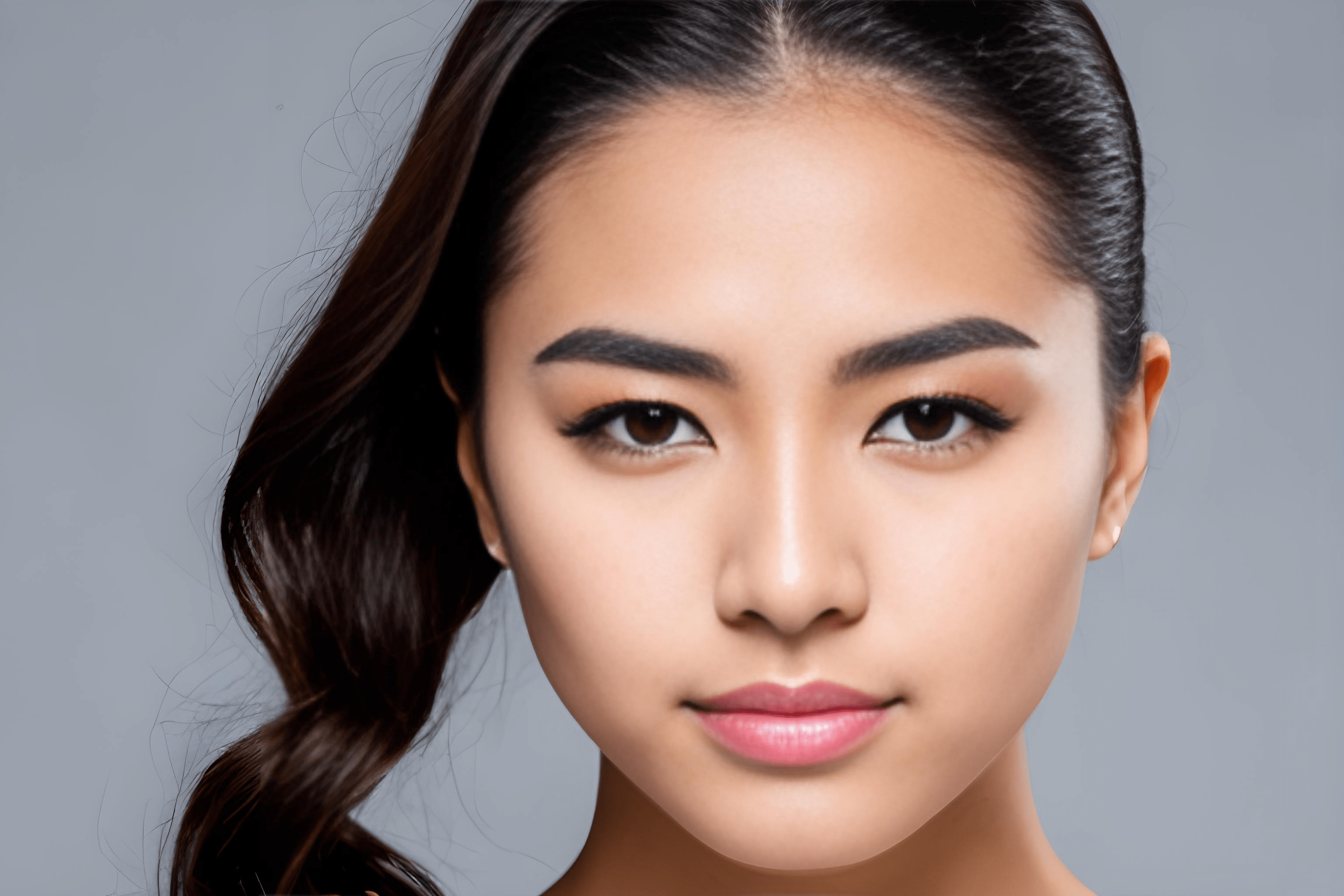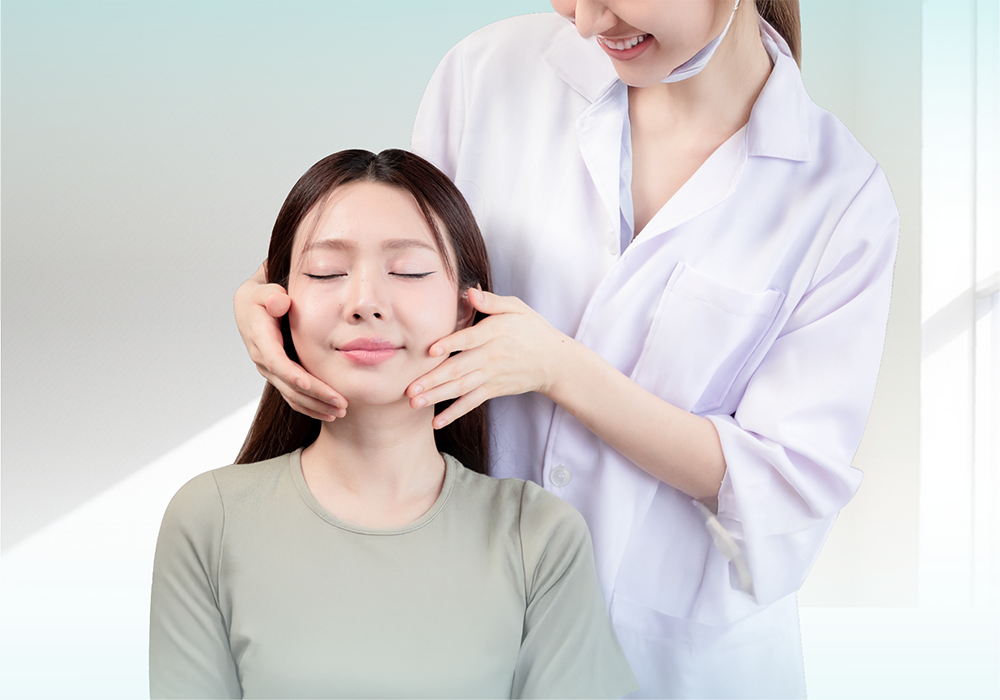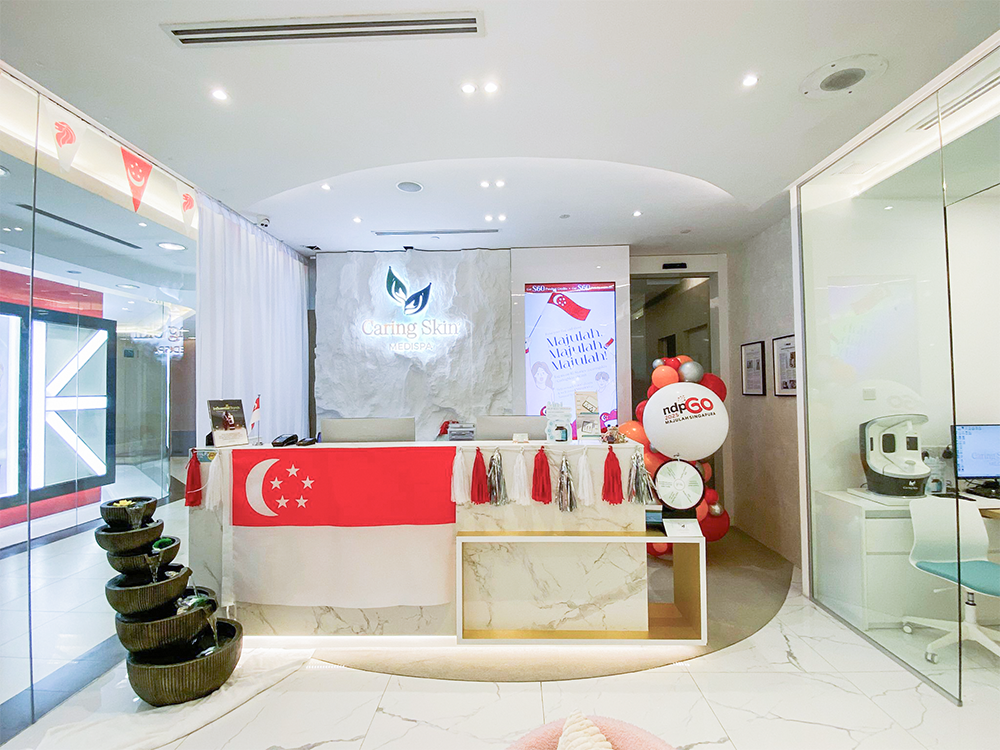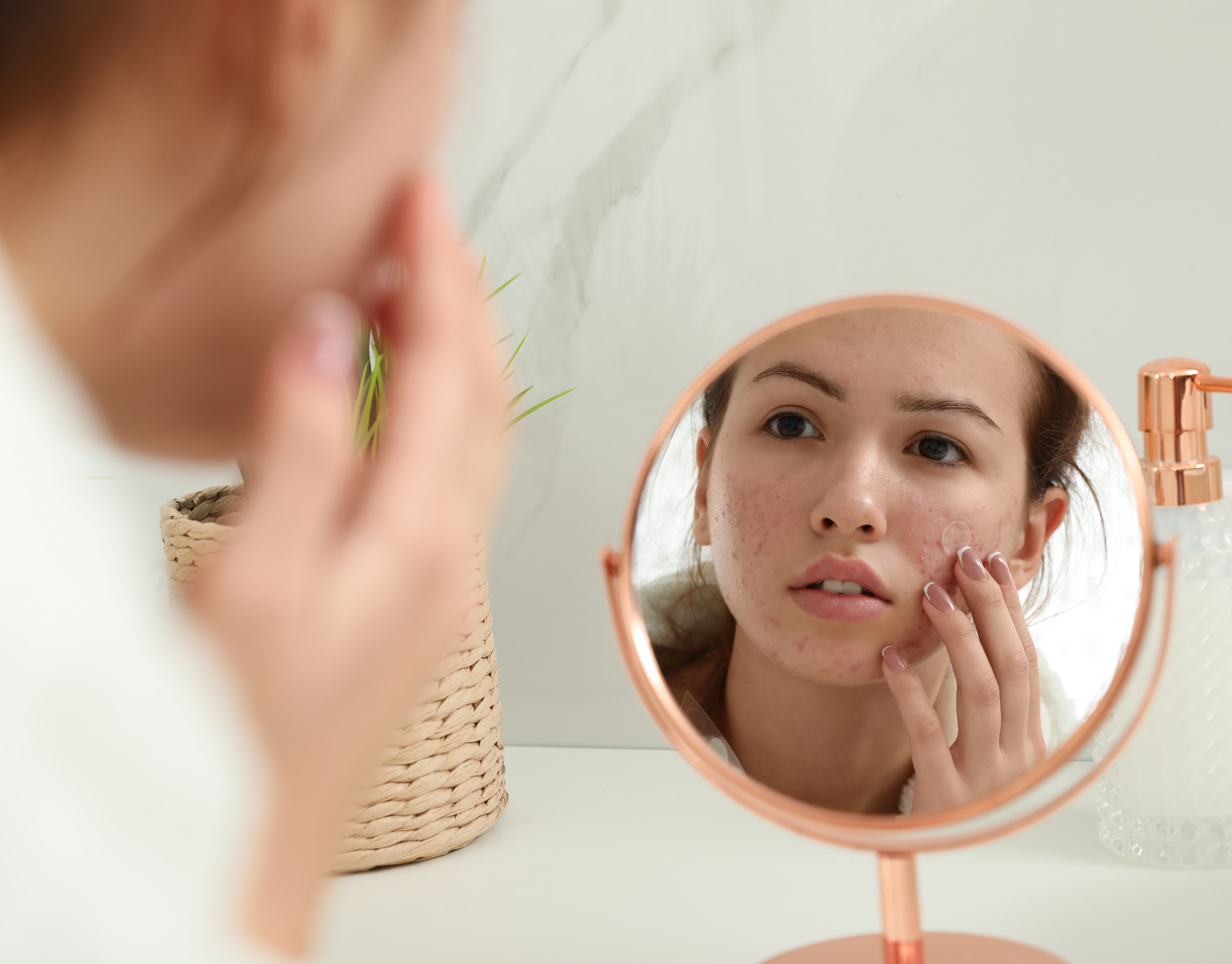What is Acne?
Acne is a common skin condition that affects millions of people worldwide. It occurs when hair follicles become clogged with oil and dead skin cells, leading to the formation of pimples, blackheads, whiteheads, and other blemishes. Acne can affect people of all ages but is most prevalent during adolescence due to hormonal changes.
Types of Acne
The primary cause of acne is the overproduction of sebum, an oily substance produced by the sebaceous glands. Sebum helps to keep the skin moisturized and protected, but when it combines with dead skin cells, it can clog hair follicles and create an environment for bacteria to grow, leading to acne.
However, there can be different types of acne appearing on your skin!
Non-inflammatory Acne
1. Blackheads (Open Comedones)
Blackheads are a type of non-inflammatory acne characterized by small, dark spots on the skin. They occur when a hair follicle is partially blocked by sebum and dead skin cells, causing the trapped material to oxidize and turn black when exposed to air.
2. Whiteheads (Closed Comedones)
Whiteheads are another type of non-inflammatory acne. They appear as small, white bumps on the skin and are formed when a hair follicle becomes completely blocked by sebum and dead skin cells. Unlike blackheads, whiteheads remain closed and do not oxidize.
Inflammatory Acne
3. Papules
Papules are small, red, and inflamed bumps on the skin. They occur when bacteria, sebum, and dead skin cells cause inflammation in a blocked hair follicle. Papules can be sensitive to touch and may be accompanied by swelling and redness.
5. Pustules
Pustules are another form of inflammatory acne. They appear as pus-filled bumps on the skin and are usually red and swollen. Pustules form when the inflammation in a blocked hair follicle worsens, leading to a buildup of pus.
6. Nodules
Nodules are larger, painful, and inflamed lumps that develop deep within the skin. They occur when the inflammation in a blocked hair follicle spreads to the surrounding tissue. Nodules can be severe and may lead to scarring if not treated properly.
7. Cysts
Cysts are the most severe form of acne. They are large, painful, pus-filled lumps that develop deep within the skin. Cysts occur when the inflammation in a blocked hair follicle becomes severe, causing the follicle to rupture and spread the infection to surrounding tissue. Like nodules, cysts can cause scarring if not treated properly.
Factors Causing Acne
Hormonal Imbalances
Hormonal fluctuations, such as those experienced during puberty, menstruation, pregnancy, and menopause, can contribute to acne development by increasing sebum production.
Genetics
Genetics play a role in acne development, with individuals who have a family history of acne being more likely to experience the condition.
Stress
Stress can exacerbate acne by increasing inflammation and sebum production in the body.
Diet and Nutrition
Certain foods, such as those high in sugar and refined carbohydrates, may contribute to acne development by causing inflammation and increasing insulin levels.
Skincare and Hygiene
Poor skincare habits, such as not cleansing the skin properly, using harsh products, or over-exfoliating, can contribute to acne development by irritating the skin and clogging pores.
Acne Treatment Options
Treating acne will depend on the suspected cause of your outbreak. Hormonal acne may require prescription medication, while clogged pores and cystic acne may require a different set of acne treatments.
Over-the-counter Treatments
Over-the-counter treatments, such as benzoyl peroxide, salicylic acid, and glycolic acid, can help to unclog pores, reduce inflammation, and treat mild to moderate acne.
Prescription Medications
For more severe acne, a dermatologist may prescribe medications such as topical retinoids, oral antibiotics, or hormonal therapies to help control breakouts and prevent scarring.
Topical Retinoids
Topical retinoids, such as tretinoin, adapalene, and tazarotene, are derived from vitamin A and help to unclog pores, reduce inflammation, and promote skin cell turnover. They are often prescribed for moderate to severe acne.
Antibiotics
Oral antibiotics, such as tetracycline, doxycycline, and minocycline, can help to reduce inflammation and kill acne-causing bacteria. They are typically prescribed for short periods to avoid antibiotic resistance.
Hormonal Therapies
Hormonal therapies, such as birth control pills or spironolactone, can help to regulate hormone levels and reduce sebum production, improving acne in some cases.
Oral Isotretinoin
Oral isotretinoin, also known as Accutane, is a powerful medication prescribed for severe or treatment-resistant acne. It works by reducing sebum production, inflammation, and promoting skin cell turnover. However, it can have serious side effects and is typically reserved for the most severe cases.
Facials
Facials are the obvious choice when you're looking for a hassle-free solution. Several skincare studios offer a wide variety of facials for all kinds of acne problems.
We at caring skin offer prevention facials, treatment options and our own set of in-house products to treat acne.
Acne Surgeries and Procedures
In some cases, dermatologists may recommend procedures such as chemical peels, laser treatments, or extractions to treat acne and reduce scarring.
Preventing Acne Breakouts
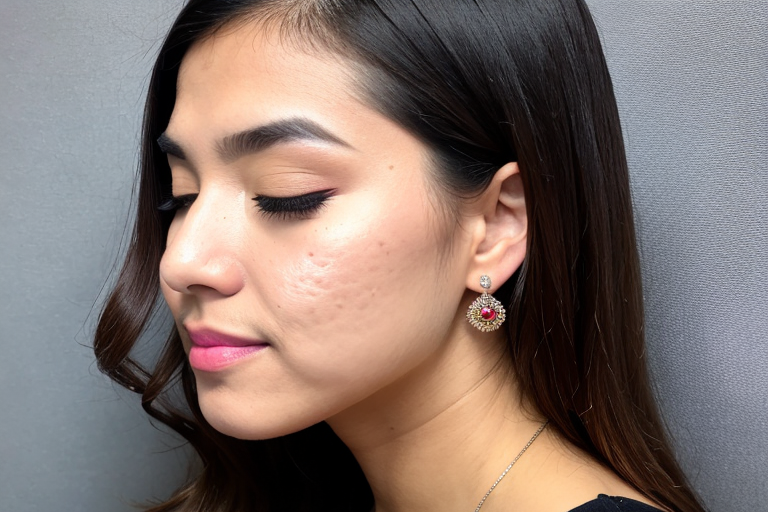
Ideally, you would want to prevent acne from happening rather than treating them when they appear. Acne scars take a long time to fade naturally.
Hence, if you have acne prone skin, you should actively seek to prevent acne from appearing.
Establishing a Skincare Routine
A consistent skincare routine that includes gentle cleansing, exfoliation, and moisturizing can help to prevent acne breakouts by keeping the skin clean, balanced, and free from excess oil and dead skin cells.
Lifestyle Changes
Reducing stress, getting regular exercise, and maintaining a healthy sleep schedule can help to improve overall skin health and prevent acne breakouts.
Diet Modifications
A balanced diet rich in whole foods, such as fruits, vegetables, lean proteins, and healthy fats, can help to reduce inflammation and promote healthy skin. Limiting processed foods, sugar, and refined carbohydrates may also help to prevent acne breakouts.
Conclusion: Achieving Clear Skin
Understanding the different types of acne and its underlying causes is crucial for developing an effective treatment plan. By working closely with a dermatologist, adopting a consistent skincare routine, and making necessary lifestyle and dietary changes, individuals can achieve clear and healthy skin.
If you are looking for acne treatment in Singapore, look no further! We at Caring Skin are dedicated to providing you with personalized and effective solutions for your skin concerns. Our experienced team of skincare professionals use the latest advancements in acne treatment and technology to help you achieve clear, healthy skin.


